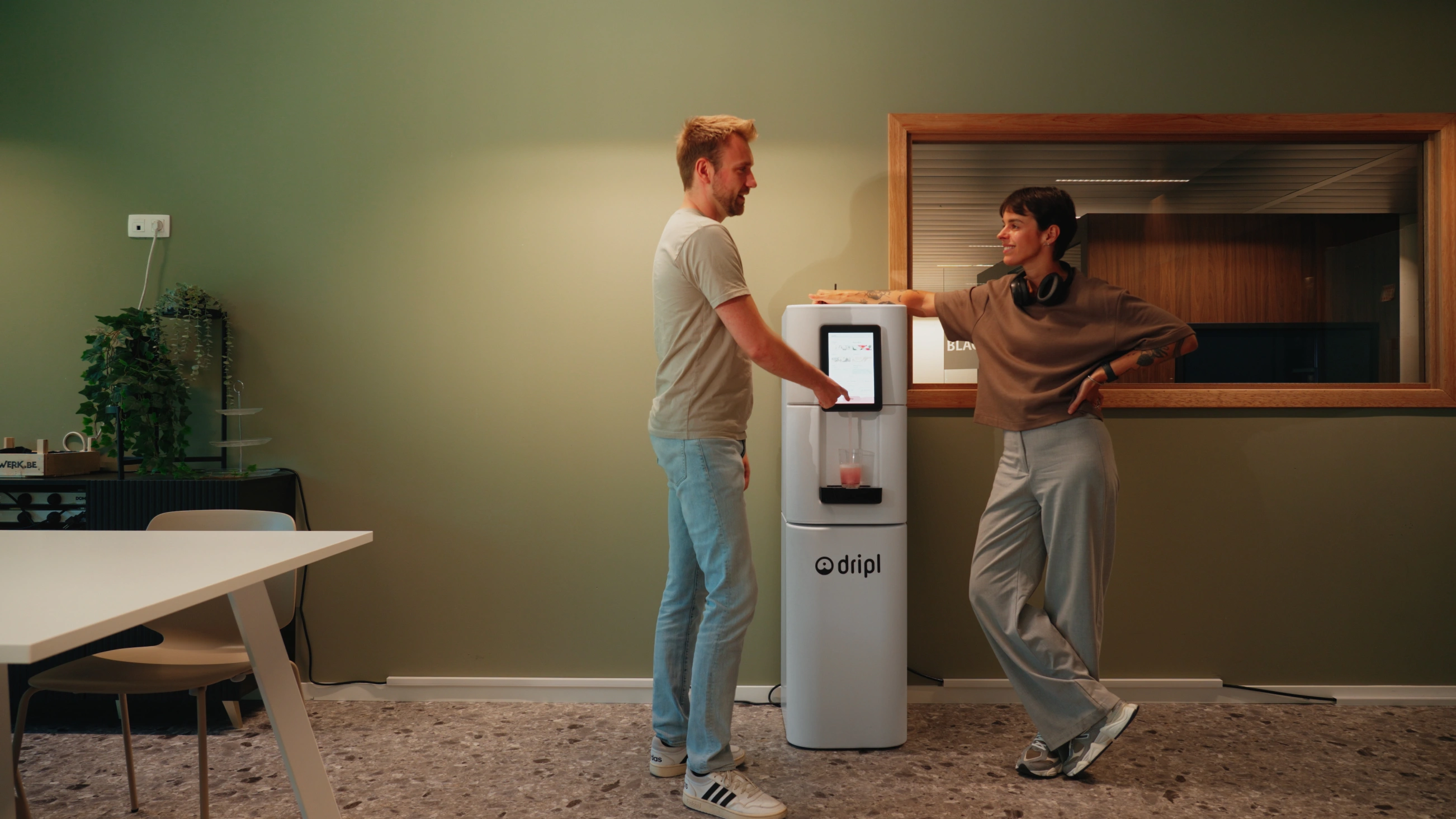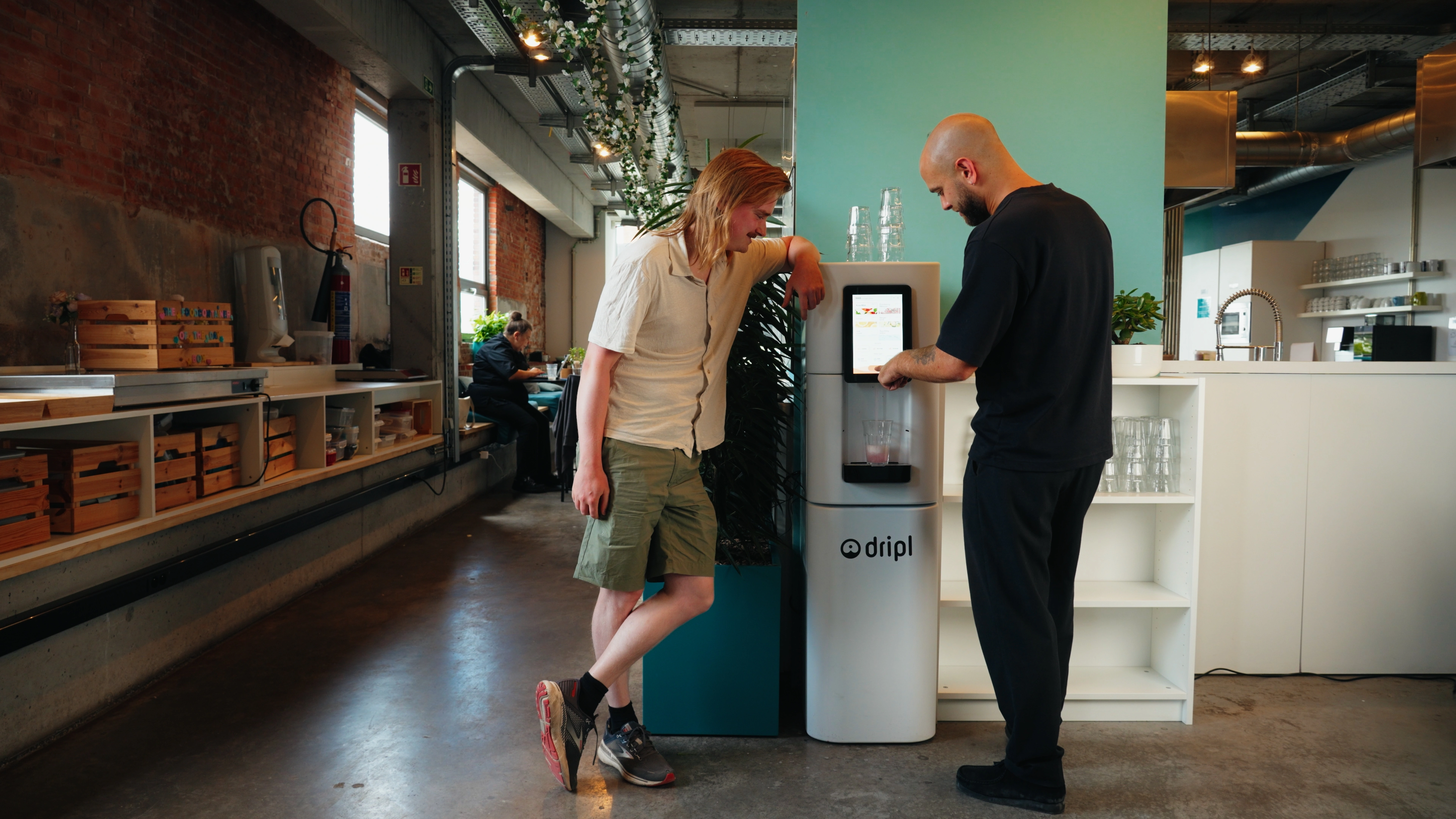All blog posts
On April 1st, deposits will become mandatory in the Netherlands. Here's all you need to know.

Deposits will become mandatory in the Netherlands on April 1, 2023. This measure is intended to reduce litter in the Netherlands and improve the recycling of plastic bottles. In this blog post, we'll answer all your pressing questions about this new legislation.
What is deposit money?
A deposit is a fee paid upon purchase of a product, such as a plastic bottle. When consumers return the empty bottle to a collection point, they receive the deposit back. The purpose of the deposit is to encourage people to return their empty bottles so they can be recycled.
Why will deposits be required?
In the Netherlands, millions of plastic bottles end up in nature every year. These bottles are often not cleaned up and cause pollution and damage to the environment. By making deposits mandatory, the government hopes to address these problems and improve the recycling of plastic bottles.
How does the new deposit system work?
Starting April 1, 2023, all manufacturers of plastic bottles must charge a deposit on their products. This applies to all reusable bottles, such as soft drink bottles and water bottles. The deposit amount will be set at €0.15 per bottle. Consumers will receive this deposit back when they return the bottle to a collection point, such as a supermarket.
The new deposit system will be implemented by the producers of plastic bottles. They are responsible for setting up a system of collection points and processing the returned bottles. This can be done, for example, with a return system.
The bottles are collected from the supermarket. Then they go to a central processing plant.
.jpg)
What are the benefits of deposits?
Mandating a deposit has several advantages. First, it will reduce litter in the Netherlands. Because consumers can earn money by returning empty bottles, fewer bottles will be thrown away.
In addition, the deposit system will improve the recycling of plastic bottles. Bottle manufacturers are responsible for processing the returned bottles themselves, which encourages them to invest more in sustainable recycling techniques.
What packaging is covered by the new law?
Starting April 1, 2023, manufacturers are required to charge a deposit on all small plastic bottles and cans they place on the Dutch market. This applies to beverage containers up to and including 3 liters. This includes mineral water, soft drinks, juices, dairy drinks, energy drinks, and sports drinks. Wine and spirits are also subject to the new law.
How much deposit do you have to pay?
The deposit amount is set at €0.15 per bottle or can. This amount is charged at the time of purchase and can be reclaimed by returning the empty container.
Where can you get deposit refunds?
You can get your deposit back at any store that sells these containers and at supermarkets that offer them. Special collection bins can also be placed in public places, such as parks or train stations.
What happens if you don't turn in packaging?
If you do not return the packaging, you lose the deposit amount. In addition, producers and importers of this packaging risk fines if they do not comply with the obligations of the law.
All blog posts
On April 1st, deposits will become mandatory in the Netherlands. Here's all you need to know.

Deposits will become mandatory in the Netherlands on April 1, 2023. This measure is intended to reduce litter in the Netherlands and improve the recycling of plastic bottles. In this blog post, we'll answer all your pressing questions about this new legislation.
What is deposit money?
A deposit is a fee paid upon purchase of a product, such as a plastic bottle. When consumers return the empty bottle to a collection point, they receive the deposit back. The purpose of the deposit is to encourage people to return their empty bottles so they can be recycled.
Why will deposits be required?
In the Netherlands, millions of plastic bottles end up in nature every year. These bottles are often not cleaned up and cause pollution and damage to the environment. By making deposits mandatory, the government hopes to address these problems and improve the recycling of plastic bottles.
How does the new deposit system work?
Starting April 1, 2023, all manufacturers of plastic bottles must charge a deposit on their products. This applies to all reusable bottles, such as soft drink bottles and water bottles. The deposit amount will be set at €0.15 per bottle. Consumers will receive this deposit back when they return the bottle to a collection point, such as a supermarket.
The new deposit system will be implemented by the producers of plastic bottles. They are responsible for setting up a system of collection points and processing the returned bottles. This can be done, for example, with a return system.
The bottles are collected from the supermarket. Then they go to a central processing plant.
.jpg)
What are the benefits of deposits?
Mandating a deposit has several advantages. First, it will reduce litter in the Netherlands. Because consumers can earn money by returning empty bottles, fewer bottles will be thrown away.
In addition, the deposit system will improve the recycling of plastic bottles. Bottle manufacturers are responsible for processing the returned bottles themselves, which encourages them to invest more in sustainable recycling techniques.
What packaging is covered by the new law?
Starting April 1, 2023, manufacturers are required to charge a deposit on all small plastic bottles and cans they place on the Dutch market. This applies to beverage containers up to and including 3 liters. This includes mineral water, soft drinks, juices, dairy drinks, energy drinks, and sports drinks. Wine and spirits are also subject to the new law.
How much deposit do you have to pay?
The deposit amount is set at €0.15 per bottle or can. This amount is charged at the time of purchase and can be reclaimed by returning the empty container.
Where can you get deposit refunds?
You can get your deposit back at any store that sells these containers and at supermarkets that offer them. Special collection bins can also be placed in public places, such as parks or train stations.
What happens if you don't turn in packaging?
If you do not return the packaging, you lose the deposit amount. In addition, producers and importers of this packaging risk fines if they do not comply with the obligations of the law.
FAQs
Get your free quote
Get your personalised quote today. We’ll get back to you soon.




-min.png)